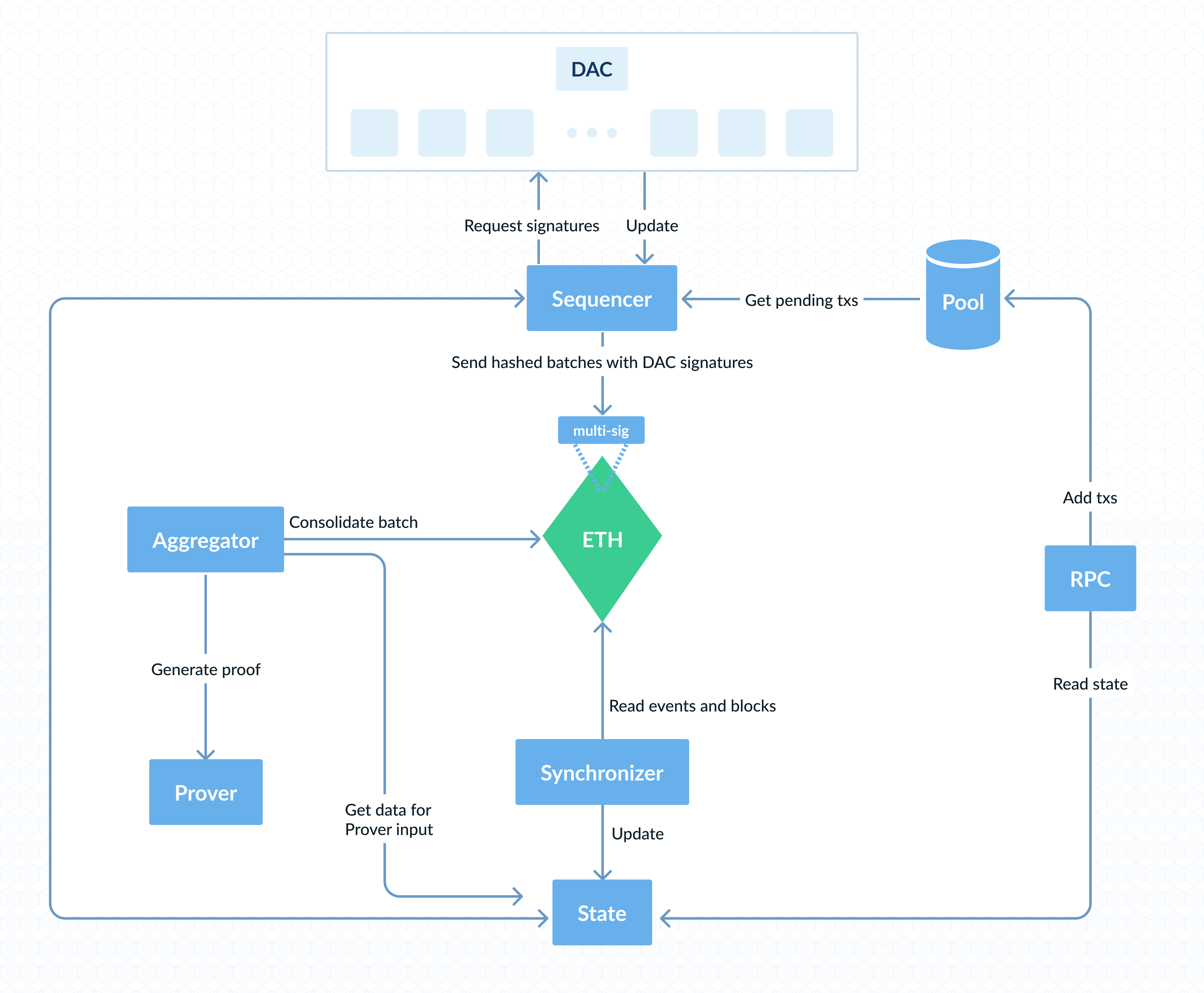Component Overview
|
Catalyst supports the SDK version 0.0.3 |
Sequencer
A Sequencer in Polygon CDK is responsible for collecting and ordering user transactions, packaging them into blocks, and preparing them for further validation. It optimizes transaction throughput and minimizes latency within the network.
Data availability committees (DACs)
Data Availability Committees (DACs) is a group of permissioned nodes whose core responsibility is to attest that the transaction data needed to reconstruct the state of the L2 is available. Projects built with Polygon CDK configure the make-up of DAC members in the datacommittee.
Aggregator
An Aggregator compiles verified transaction data into a comprehensive format. In blockchain setups like Polygon, it prepares zero-knowledge proofs for transaction batches, which confirm transaction validity securely.
Layer 1 (L1) Smart Contracts
L1 smart contracts are deployed to handle essential tasks such as verifying data integrity and authenticity, managing network consensus, and ensuring compliant interactions within the network. For example, in a setup involving batch validations and DAC operations, the L1 smart contracts would be responsible for:
-
Verifying the signatures provided by Data Availability Committees (DACs).
-
Ensuring that batches of transactions meet network rules before finalizing them.
-
Integrating zero-knowledge proofs submitted by an Aggregator to confirm transaction validity without compromising privacy.
The deployment of these contracts is managed by the Deployer, which uses a secure key to authenticate and execute the deployment, ensuring that all operations are performed securely and are in line with the intended network architecture.

|
To know more about CDK Validium please check the official Validium docs |